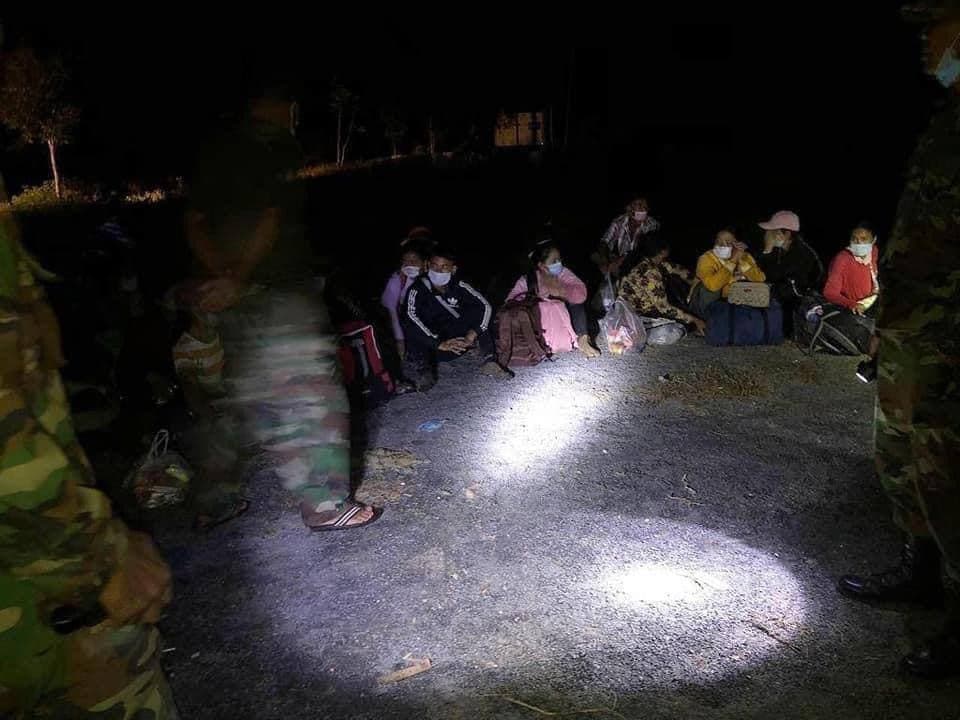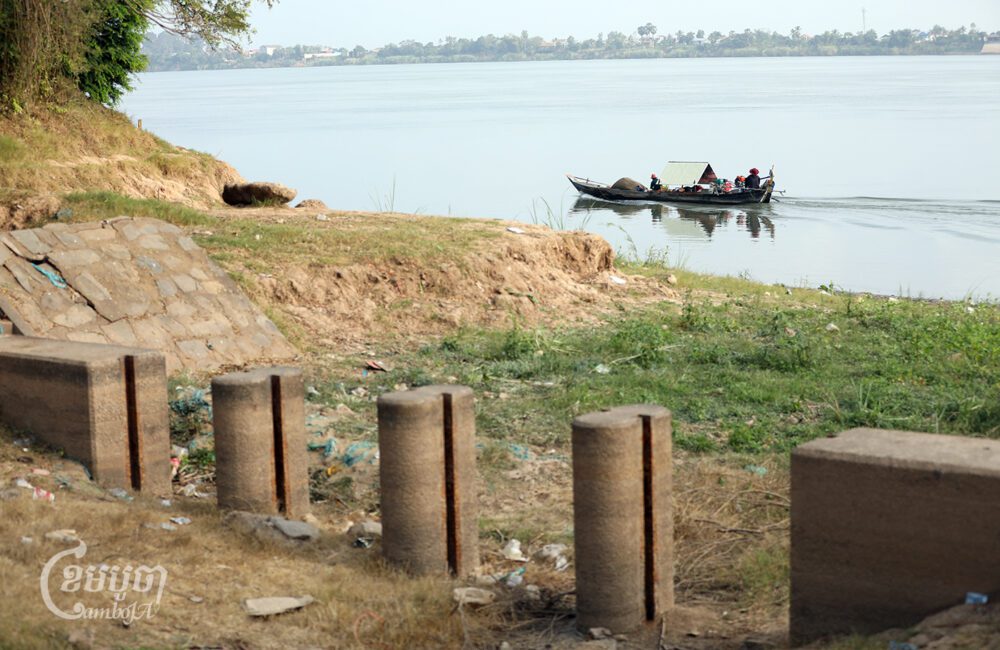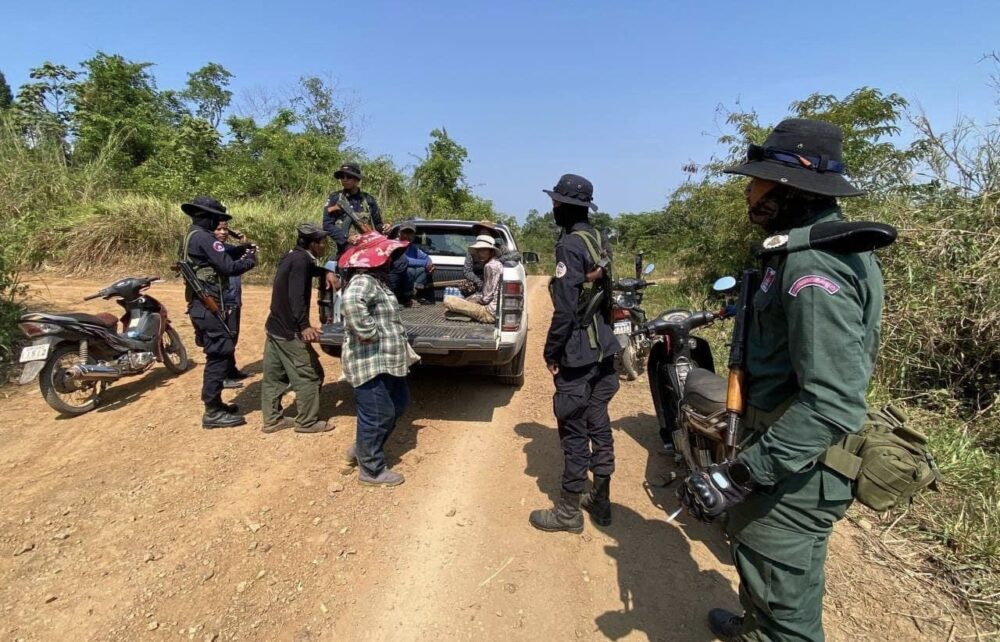Civil society groups have expressed concern at a reported increase in human trafficking as well as the “systematic” unlawful smuggling of people across the Thai-Cambodia border in search of work in response to the economic impact of COVID-19.
Chou Bun Eng, vice-chairwomen of the National Committee for Counter Trafficking, said that the unlawful transportation of people across borders has increased significantly compared to the same period last year. She reported that authorities had cracked down on 85 cases in the first three months of 2021 compared to just 25 cases in the first quarter of last year.
Some of these cases implicated figures within Cambodia’s police and military. In February, a district police chief in Battambang province named Kim Ponlork was charged with human trafficking over the improper release of two suspected people smugglers. Sum Pov, a major general in the Royal Cambodian Armed Forces, has also been charged for transporting Chinese nationals between provinces in violation of a travel ban put in place to prevent the spread of COVID-19.
In the aftermath of these scandals, Prime Minister Hun Sen called for border officials to be on high alert as Cambodians working overseas continue to stream home amid increased fear of the coronavirus and fewer work opportunities in Thailand.
Soum Chankea, Banteay Meanchey provincial coordinator at rights group Adhoc, said that illegal border crossings were largely driven by people’s worsening livelihoods as a result of the COVID-19 pandemic.
“There is a system for bringing people across the borders from both countries,” he said. He added that some people travelled on their own due to a lack of food and jobs in Cambodia, especially migrant workers who have been unemployed since returning from Thailand.
“Officials should look in the mirror at their own leadership [and ask themselves] whether people have enough to eat,” he said.
Ms. Bun Eng said that about 50 of the 85 cases were unlawful border crossings. She added that most cases involved people crossing to Thailand, but there were some who had been detained on arrival in China or attempting to cross to Vietnam. Some, she said, were promised work upon reaching their destination; others were sent as brides.
“We do not know if they got married before going there [China], but they [smugglers] are trying all means to transport people out of Cambodia,” she said.
She noted that at the end of 2020, Cambodian authorities had rescued one girl from China after she was tricked by human traffickers into thinking there would be a job waiting for her there.
“They crossed through Vietnam and continued to China,” Ms. Bun Eng said. “Usually, our border has many checkpoints and brokers always take the opportunity to transport people across.”
She added that the government had banned informal border crossings in search of work in order to protect migrant workers and their communities from infection.
On Monday, Banteay Meanchey provincial military police and armed forces arrested two brokers who were allegedly trying to bring about 20 people across the border to Thailand through a checkpoint in Malai district’s Boeng Beng commune. A military police deputy commander who gave his name only as Phearom confirmed that the two ring leaders had been arrested around 3:00am that morning while trying to cross the border illegally. The migrant workers with them have now been quarantined for 14 days.
“They were cheated by brokers who promised them jobs in Thailand,” Mr. Phearom said. He added that his officials were preparing the necessary paperwork to send the suspects to court. Two more drivers were arrested on Thursday last week by provincial police for trying to transport more than 10 people across the border in search of work.
Moeun Tola, executive at the Center for Alliance of Labor and Human Rights, said that people smugglers were taking advantage of the chaos caused by the pandemic.
“It is a chance for brokers to smuggle people who are seeking jobs in other countries, when Cambodian authorities are busy fighting against COVID-19,” he said.
“It is a serious danger because other nations have placed restrictions on entering their country,” he said. “For example in Thailand, [migrant workers] will face imprisonment, exploitation at work, and the challenge of COVID-19 infection.”
National Police spokesman Chhay Kim Khoeun could not be reached for comment.








